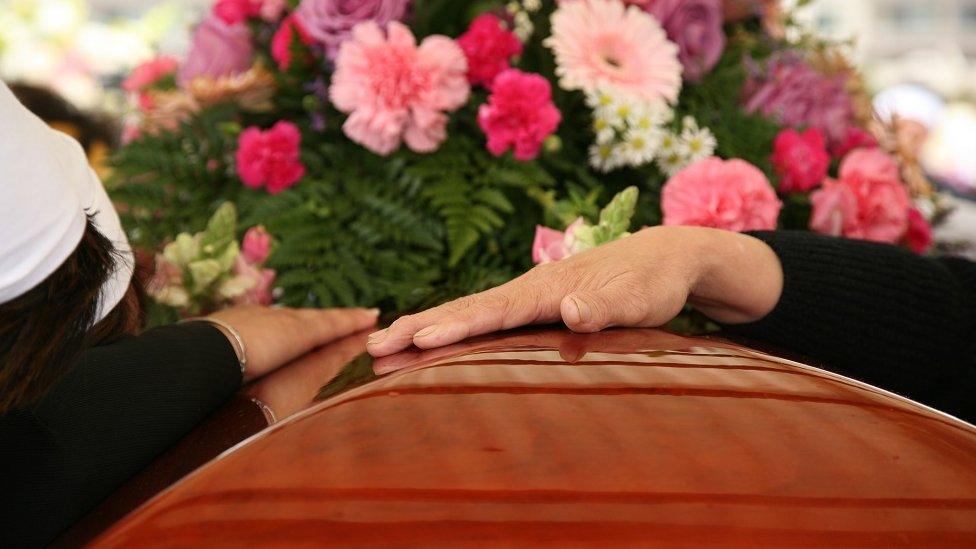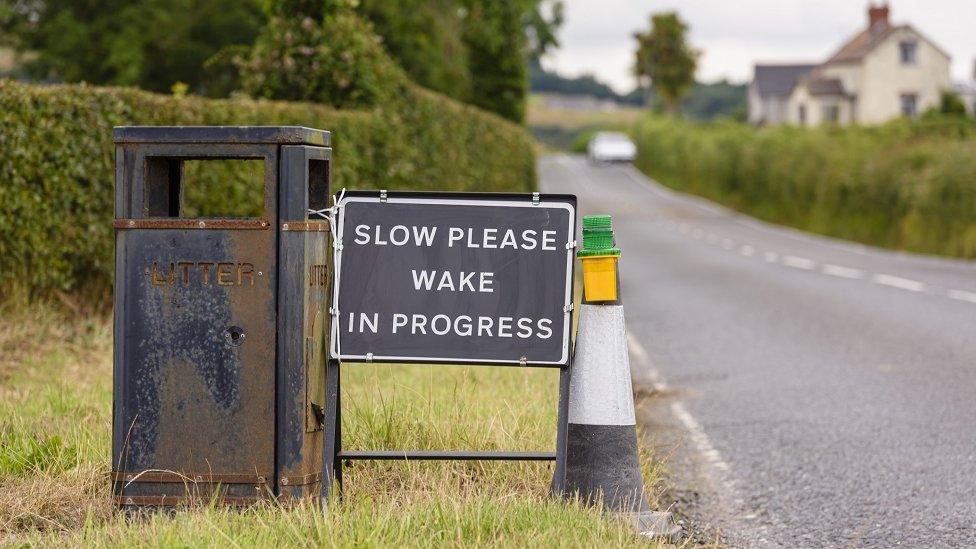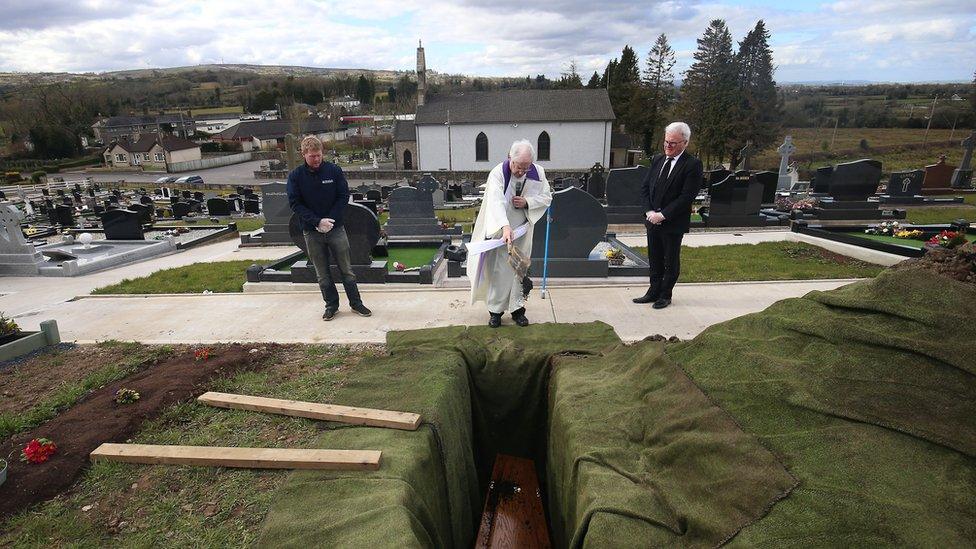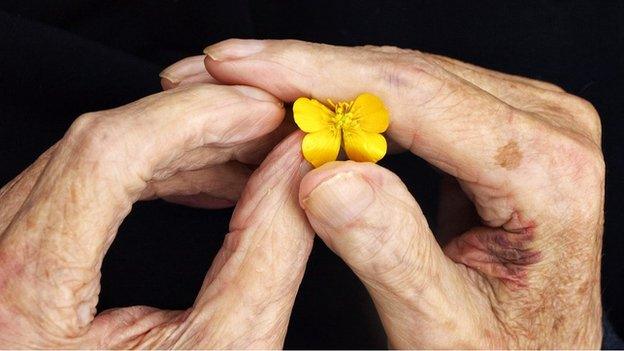Funerals: Study shows Irish wakes may help more with grief
- Published

Cultural differences surrounding death may contribute to lower levels of prolonged grief in Ireland than the UK
Traditional Irish wakes may help people cope better with their bereavement, new research has suggested.
The Ulster University study, which involved more than 2,000 people, looked at prolonged grief disorder (PGD).
It described the disorder as an enduring yearning for the deceased persisting for more than six months.
About 10.9% of grieving people in Ireland featured in the research fulfilled the disorder's criteria, compared to 15.3% in the UK.
The authors of the research, which has been published in the Journal of Traumatic Stress., external said that "cultural differences with regard to death may be an explanatory factor" to the reduced levels of the disorder in Ireland.
"For example, in Ireland, it is customary to hold a wake (i.e., social gathering prior to a funeral) during which family, friends, neighbours, work colleagues and acquaintances can come to pay their respects and support the bereaved," the authors said.

Traditional wakes are commonplace across the island of Ireland
The Irish wake usually takes place in the days between an individual's death and their funeral.
It is a traditional social practice, associated with an intense period of mourning and honouring the deceased.
In some cases, there may be an open coffin, allowing attendees to pay their respects and say their goodbyes.
Wakes usually last two or three days, to allow people time to come and go and participate in the communal experience, and often involve elements such as sharing stories and memories; comforting family members; and music and refreshments.
The study added that, in the United Kingdom, such events take place after the funeral and that while Irish funerals are typically regarded as communal events, in the United Kingdom they are often regarded as being private.
"Hence it may be that there is a greater sense of community within Irish bereavement culture, with it being widely established that social support plays a key role in determining the ability of the bereaved to adjust to their loss," researchers said.
- Published1 April 2020

- Published14 December 2015
